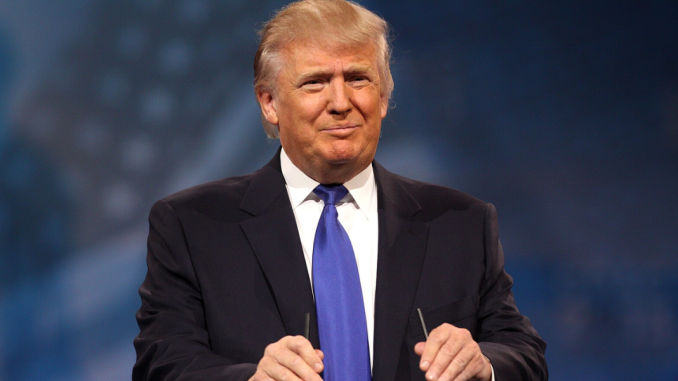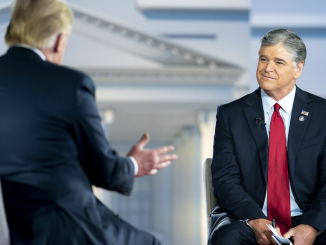
Donald Trump is on a mission to drain Washington, D.C.’s “Swamp.”
Voters returned him to the White House with a mandate for change.
And Washington, D.C.’s “Swamp” was horrified over one advantage Donald Trump wields.
Donald Trump can take a wrecking ball to Washington, D.C.
President-elect Donald Trump is returning to Washington, D.C. to finish his battle with the “Swamp.”
Beating the entrenched special interests and unelected bureaucrats who reside there won’t be an easy fight.
Veteran political journalist Mark Halperin predicted that Trump was better positioned to bring “radical change” to Washington, D.C. than his Republican predecessors on his podcast 2WAY Tonight.
“If you look at all the Republican presidents since Reagan, including Reagan — Bush I, Bush II were never going to be bulldozers of the establishment,” Halperin began. “They just weren’t. Bush 43 looked for some change, no doubt, but he was not a bulldozer against the establishment.”
“Reagan talked that way, but he had a Democratic-controlled House and, some of the time, a Democratic-controlled Senate, and did not really follow through on this rhetoric of fundamental change,” Halperin added.
Halperin said that Trump fell short of his goal of bringing major changes to Washington, D.C. but noted that the President-elect has some unique advantages after being out of office for four years.
“Trump I did some things along those lines, but really, if you kind of tally it up — and of course COVID intervened — but if you tally it up, there wasn’t a ton of fundamental change,” Halperin explained. “There were changes in the tax code, changes in energy policy, changes in regulation, but not a fundamental remaking of what people in MAGA-land would call the ‘Deep State,’ of the culture, of the liberal culture, moving vast numbers of federal employees out of Washington.”
Trump’s advantages in his second term
Halperin said there was a desire from voters, especially conservatives, to deliver fundamental change to Washington, D.C.
He pointed out that Trump’s second term coming after a four-year break could help him do this.
“A normal two-term President in his second term is exhausted, and his staff is exhausted because they’re five years in. And they are wiser, but they don’t have the momentum of coming out of, typically, a more dominating reelection,” Halperin explained. “Most incumbents — not all, but most reelected incumbents — have a smaller victory the second time. Why is this President different? Number one, he was out for four years and had four years to think about all this, to formulate policy, and to think about what he did wrong the first time from his point of view.”
Trump has the advantage of receiving a bigger mandate and a fresh staff ready to hit the ground running.
“They’ve also rested because although some of them have been through a campaign, they haven’t governed for four years. And he won — you know, he won the popular vote this time; he didn’t last time. So, arguably, he’s got a greater mandate than he did the first time,” Halperin added. “All of those things, I think, open the possibility to some pretty radical change — and I’m using ‘radical’ in a neutral way — just fundamental about changing the nature of the federal government.”
Trump has already made some big changes like appointing Tesla CEO Elon Musk and entrepreneur Vivek Ramaswamy to a Department of Government Efficiency to find areas to slash regulations and cut spending.
The President-elect has the chance to shake things up in the business-as-usual world of Washington, D.C. politics.



